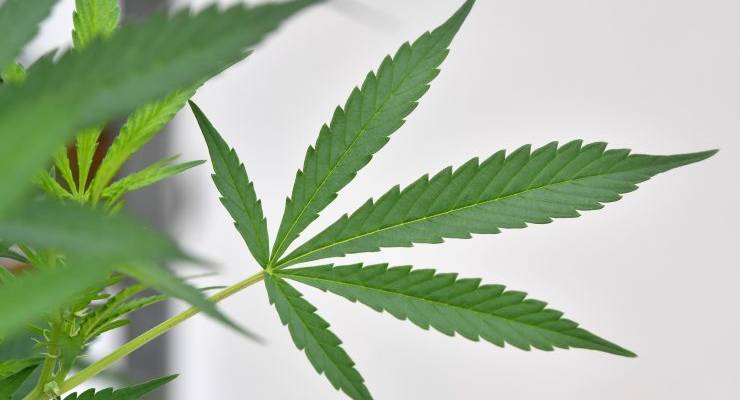
Michael Pettersson, a fresh-faced millennial Labor member of the ACT government, could be called the godfather of Canberra weed politics. It was Pettersson who introduced The Personal Cannabis Use Bill in November 2018 after speaking to constituents who overwhelmingly supported decriminalisation.
“It’s an idea that had been floating around the Labor branches but no one had had the gumption to actually do it,” Pettersson told Crikey. “I figured if no one else is doing it, I’m going to.”
It was entered as a private member’s bill — meaning it was introduced not by the party as a whole, but by Pettersson — and allows adults to own two plants each and possess 50g of dry cannabis.
Initially, the Greens supported the bill — but when they faced criticism from the opposition about mental health concerns, they flipped and sided with the Liberal Party, voting to delay the bill and refer it to the tripartisan health committee for an inquiry. The Greens also pushed to allow hydroponic cannabis cultivation in the legislation, arguing that marijuana is tough to grow in the Canberra climate.
The committee made 16 recommendations — four were rejected, six accepted and the rest noted by the government. “The ACT government does not condone or encourage the recreational use of cannabis or other drugs … We must acknowledge, though, that the outright prohibition model of drug policy is not working,” the government response to the committee’s report states. The bill will come into effect on January 31 once it’s signed off by ACT Health Minister Rachel Stephen-Smith.
Vocal opponents of the bill include shadow Attorney-General Jeremy Hanson and shadow Police Minister Giulia Jones.
The progressive capital of Australia
When it comes to drug reform, Canberra has been leading the way for progressive policy. Canberra’s Groovin’ the Moo festival hosted the first and second pill-testing trial in Australia. The ACT is the only state or territory in Australia to allow pill-testing.
While Victoria is often referred to as Australia’s most progressive state or territory, the ACT has quietly been passing revolutionary legislation for decades. It was the second place to decriminalise homosexuality, one year after South Australia in 1975, and was the first jurisdiction to completely remove abortion from criminal law.
A report from the Australia Institute calls Canberra a “forward thinking” and “progressive” city, citing the government’s plan to phase out stamp duty and insurance taxes, its target of 100% renewable energy, its ban on billboards larger than two square metres, its public holiday for reconciliation, and its assisted dying laws.
And now, it’s the first jurisdiction to let its residents light up.
What about the rest of the country?
Federally, cannabis is still illegal. This may present a problem when it comes to prosecuting cannabis users — Commonwealth law, which is harsher than most state laws when it comes to cannabis, trumps state law. This means users may face harsher penalties if police enforce Commonwealth law. The Commonwealth may even override the ACT law entirely, striking it out as being inconsistent with the national legislation.
Across the country, South Australia has the second-most lenient laws in the country, with possession of small quantities of cannabis decriminalised — users face a fine if caught. In the Northern Territory, users are fined if they have less than 50 grams of marijuana, one gram of hash oil or 10 grams of seeds, and face criminal charges for more. In Western Australia, Queensland, New South Wales, Tasmania and Victoria, first-time users with small amounts of cannabis are warned and may be sent to an intervention program, with criminal convictions for repeat offenders. NSW has the strictest laws — a caution is given only if less than 15 grams is found, compared to 50 grams for other states and territories.








How good is Canberra, except Parliament House?
The point is well made about not supporting drug use but accepting that a punitive criminal law based approach is counter productive.
We need to put more faith in people’s ability to make good decisions about drugs by helping with other parts of their lives that may influence unhealthy drug use. We also need to drop the clearly incorrect artitude that all drug and alcohol use is inherently harmful and driven by trauma and misery.
Despite the absolute abundance of alcohol outlets and relative ease and cheapness of procuring many illegal drugs, most people use either none or very little of their own free choice.
well Canberra i full of public servants making decisions – can a decision be overturned because the public servant had psychotropic drug on board – ? great source
of new legal review – and about as valid as the UK Supreme court’s reasoning
People wishing to grow cannabis in cold and frosty Canberra might like to research this https://homeguides.sfgate.com/compost-hot-bed-76490.html
The First Government after self-government decriminalised prostitution and regulated it, passed new weapons control laws adopted in part by PM Howard after the Port Arthur massacre, set the ball rolling on a Balancing Rights Review of Services for those with a mental disability, was the first jurisdiction in Australia to make the mere possession of child pornography an offence and pushed the Commonwealth to make extra-territorial laws relating to child exploitation activity unlawful, brought in a then novel Discrimination Act. A subsequent Government introduced a Human Rights Act.